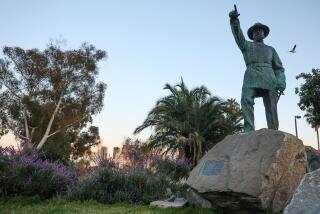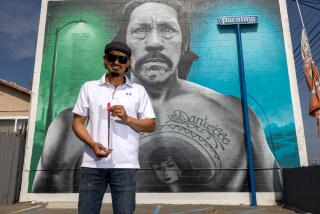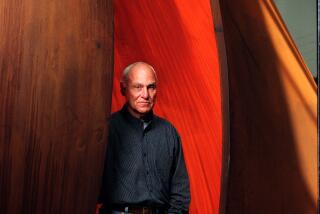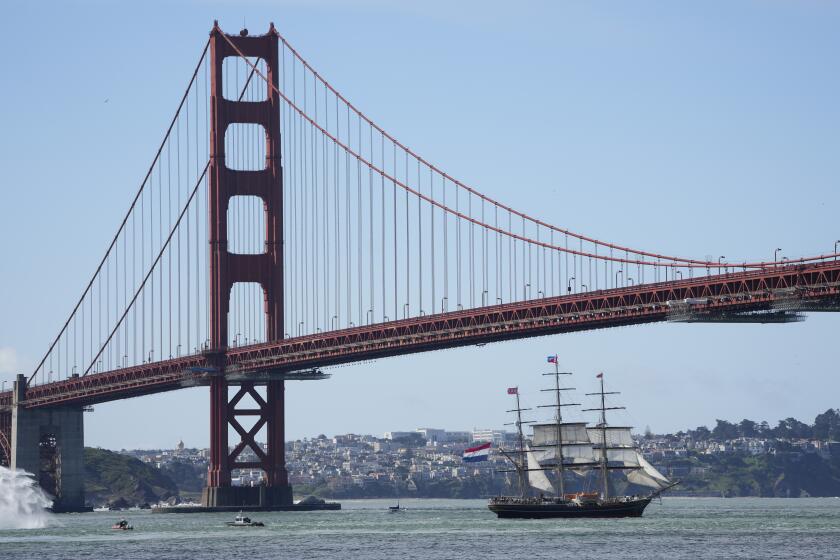Berkeley art installation that looms over I-80 pedestrian bridge faces removal
For more than a decade, two massive sculptures have greeted visitors on both sides of Interstate 80 in west Berkeley. Now, the installation faces deconstruction after the city’s arts commission voted to remove it.
Titled “Berkeley Big People,” the monumental sculptures made of steel, bronze and other materials represent the urban and cultural experiences of the city. A violinist, scientist and activist are depicted, as are a wheelchair user, bird watchers and kite fliers. The people are, in fact, quite big.
The two-part piece, created by artist Scott Donahue, has stirred debate since it was erected in 2008, and many have expressed dissatisfaction with its aesthetic. On July 24, the Berkeley Civic Arts Commission voted to remove the sculptures.
The staff of the Civic Arts Commission avoided any reference to the artwork’s design in its proposal for “deaccession.” The group says the statue requires excessive maintenance and conservation that could cost more than $100,000. The artwork cost $196,762 when first created.
“The painted fiberglass figures are in poor condition caused by paint failure and potential fiberglass resin failure. There are large gray patches and streaks across all of the figures caused by paint loss from exposure to high winds, rain, and high UV exposure. The bronze paint binder has failed, causing it to leach down the surface of the sculpture onto the platform and the columns, which were originally painted a green‐gray,” the document states.
Donahue has designed and installed public art since 1983 in California, Colorado, New York, New Jersey and Italy. The artist was selected in 2002 to create the entry sculpture for Berkeley’s bicycle and pedestrian bridge after the city’s Civic Arts Program held a nationwide competition.
The proposal to remove the artwork includes plans to work with Donahue on a new project. But the artist is frustrated that the removal is even being considered. In an email to the city, he expressed his disappointment.
“How is it that eight members of an appointed board can make such a significant decision, on behalf of an entire city, with essentially no notice to the artist, and without any public input, expert testimony, or approval by the City Council?” Donahue wrote. “Public art is inherently controversial because it’s public. A full, public discussion of the artwork’s meaning is necessary.”
Donahue thinks he can repair the sculptures for $15,000, far less than the city’s estimated cost.
According to news site Berkeleyside, there is a 90-day period from the July 24 vote before any removal could take place. During that time, the public can share input on the installation.
More to Read
Start your day right
Sign up for Essential California for news, features and recommendations from the L.A. Times and beyond in your inbox six days a week.
You may occasionally receive promotional content from the Los Angeles Times.







